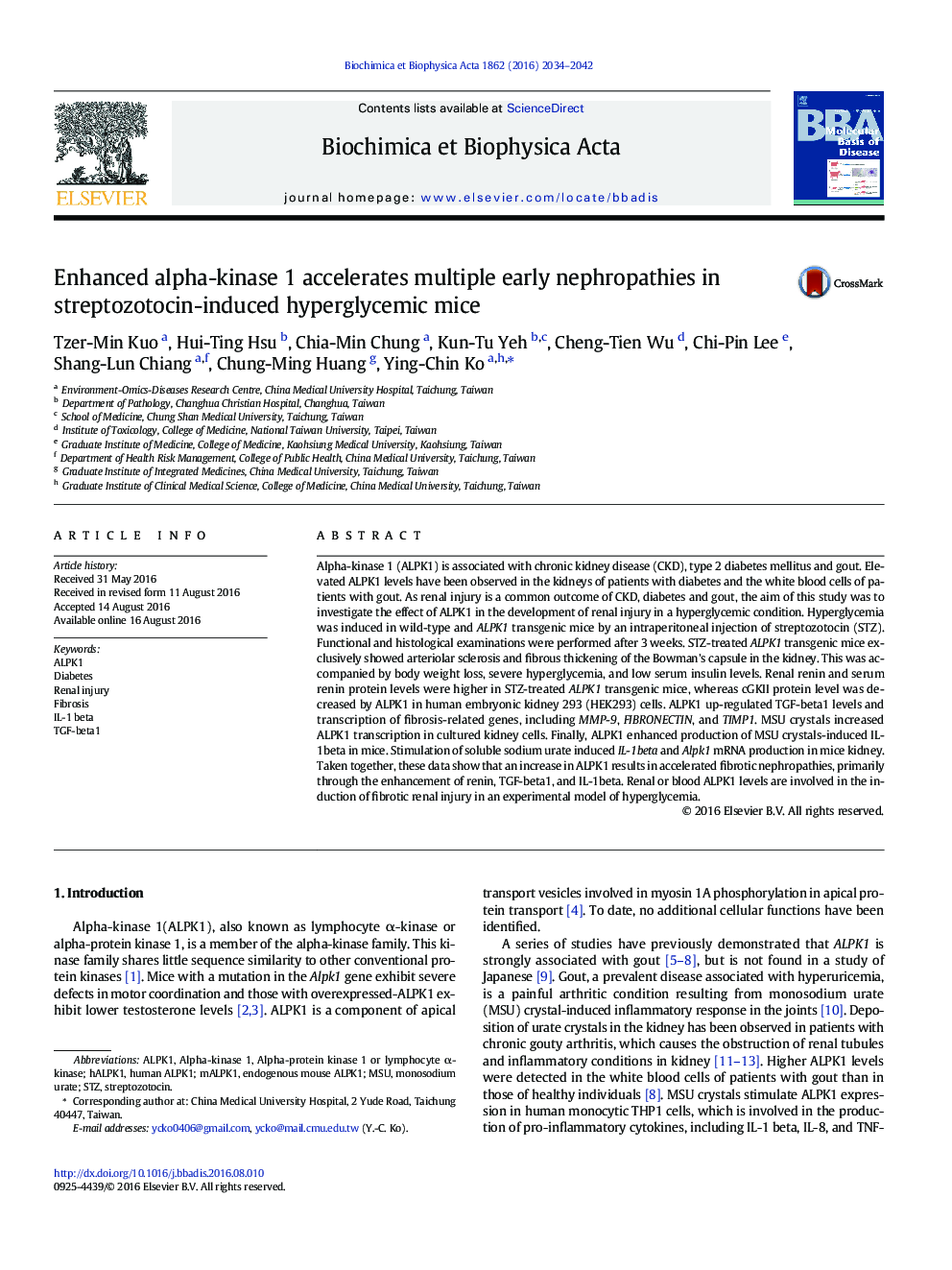| Article ID | Journal | Published Year | Pages | File Type |
|---|---|---|---|---|
| 1904445 | Biochimica et Biophysica Acta (BBA) - Molecular Basis of Disease | 2016 | 9 Pages |
Abstract
Alpha-kinase 1 (ALPK1) is associated with chronic kidney disease (CKD), type 2 diabetes mellitus and gout. Elevated ALPK1 levels have been observed in the kidneys of patients with diabetes and the white blood cells of patients with gout. As renal injury is a common outcome of CKD, diabetes and gout, the aim of this study was to investigate the effect of ALPK1 in the development of renal injury in a hyperglycemic condition. Hyperglycemia was induced in wild-type and ALPK1 transgenic mice by an intraperitoneal injection of streptozotocin (STZ). Functional and histological examinations were performed after 3Â weeks. STZ-treated ALPK1 transgenic mice exclusively showed arteriolar sclerosis and fibrous thickening of the Bowman's capsule in the kidney. This was accompanied by body weight loss, severe hyperglycemia, and low serum insulin levels. Renal renin and serum renin protein levels were higher in STZ-treated ALPK1 transgenic mice, whereas cGKII protein level was decreased by ALPK1 in human embryonic kidney 293 (HEK293) cells. ALPK1 up-regulated TGF-beta1 levels and transcription of fibrosis-related genes, including MMP-9, FIBRONECTIN, and TIMP1. MSU crystals increased ALPK1 transcription in cultured kidney cells. Finally, ALPK1 enhanced production of MSU crystals-induced IL-1beta in mice. Stimulation of soluble sodium urate induced IL-1beta and Alpk1 mRNA production in mice kidney. Taken together, these data show that an increase in ALPK1 results in accelerated fibrotic nephropathies, primarily through the enhancement of renin, TGF-beta1, and IL-1beta. Renal or blood ALPK1 levels are involved in the induction of fibrotic renal injury in an experimental model of hyperglycemia.
Related Topics
Life Sciences
Biochemistry, Genetics and Molecular Biology
Ageing
Authors
Tzer-Min Kuo, Hui-Ting Hsu, Chia-Min Chung, Kun-Tu Yeh, Cheng-Tien Wu, Chi-Pin Lee, Shang-Lun Chiang, Chung-Ming Huang, Ying-Chin Ko,
